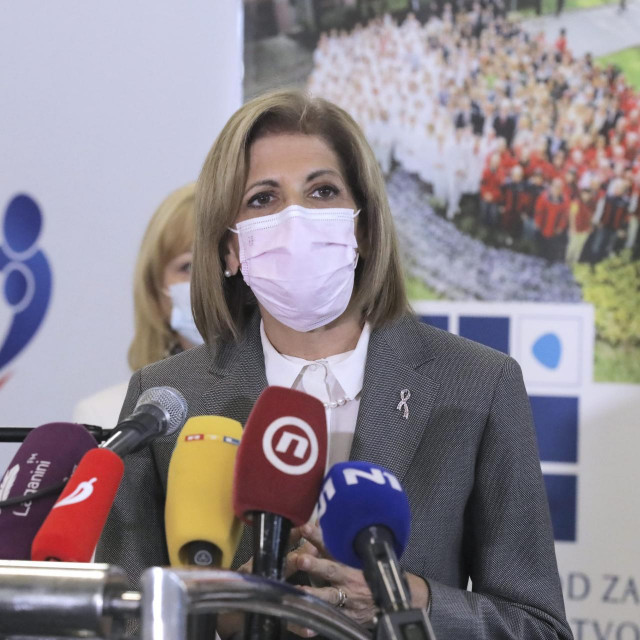
Contrary to estimates from other parts of the world that with Omicron variant we are having our last battle with the pandemic, Europe takes a more cautious approach. According to EU Health Commissioner Stella Kyriakides who spoke to a small group of journalists in Brussels including EURACTIV, current scientific data cannot predict if this is the last wave of the pandemic.
“We have seen many twists and turns throughout this pandemic. So, I will not put predictions on a when and whether this is going to be the last wave or not. What we do know is that vaccines have not failed us,” she said.
The Cypriot Commissioner also said the option of a new vaccine targeting Omicron or multiple variants could not be ruled out and added that new therapeutics are coming up. Kyriakides said vaccines do protect but do not completely prevent infection and transmission.
“But we do know that it overall does reduce the chances of getting infected and of course against serious disease. I, therefore, believe that what we need to understand is that COVID is unlikely to disappear by itself. And until it may become endemic at a certain stage, we need to protect ourselves and others around us and through our vaccination strategies,” she said.
Referring to the rapid spread of the Omicron variant, she said we realised that variants are an “ever-present threat” for return to normality and can change the course of the pandemic very quickly. “And unfortunately, this is very difficult to predict,” she said.
Omicron is not a mild variant
Kyriakides repeatedly emphasised the need for vaccination to also protect Europe’s health systems as we are currently facing a situation with very high transmissibility of Omicron.
“Omicron might be milder regarding the insensitivity of infections for the individual, but it should by no means be considered a mild variant, it still remains a dangerous virus. The sheer weight of numbers that we see is enough to potentially overwhelm health systems,” she said.
She added that it’s being noticed a rise in the hospitalisations for example in the United States with a number of younger patients and especially children entering hospitals. Kyriakides described a “very concerning situation” driven by a co-existence of Omicron with Delta. “In view of the sharp increase we're seeing in cases, and as forecast by ECDC, we expect to see an increase in hospital admissions in several countries in particular among the unvaccinated and especially children. But I want to underline that in fact we have had stability in the numbers for six weeks of the death rate and of ICU admissions,” she added.
Unvaccinated will suffer the most
Approximately 70% of the population is now fully vaccinated, about 45% have had a booster and following the approval of the paediatric vaccines, 23% of those under 18 years old have been partially vaccinated. However, according to Kyriakides, we have not yet reached a sufficiently high level of vaccination across the bloc to protect us from Omicron. “It is also becoming increasingly clear that the member states that are going to suffer the most are those that have less vaccination rates,” she warned. Referring to the five COVID-19 therapeutics which have been already authorised, she said they can really make a difference to those affected by COVID and next week, the European Medicines Agency (EMA) is likely to authorise Paxlovid from Pfizer while Molnupiravir from Merck is expected in February.
However, she warned that no one should believe that they should wait for a better COVID-19 vaccine in the future. “It is crucial to vaccinate and boost now. And the best vaccine is the one that we can take now”.
Adaptive vaccines on the table
Asked by EURACTIV about the ongoing discussion over a vaccine adapted to target Omicron specifically or a vaccine to target multiple variants, she said “no option should be excluded”.
“If we have learned anything from this pandemic is never to say never. Significant vaccine development is constantly underway. And if and when there is a final decision on how this should be adapted, I can assure you that the EMA will approve it as quickly as possible and as soon as the necessary data has been received.”She said according to science the three vaccine doses do protect strongly against hospitalisation and death. “And possibly now is the time to reflect if they need to change the composition of the current vaccines and explore different options and alternatives in order to have a vaccine that is as broad as possible.”
“So again, all options are on the table. The recommendation for a new vaccine composition will consider the changing epidemiological picture and the possible need for adaptation, we will be ready,” she concluded.






Za sudjelovanje u komentarima je potrebna prijava, odnosno registracija ako još nemaš korisnički profil....